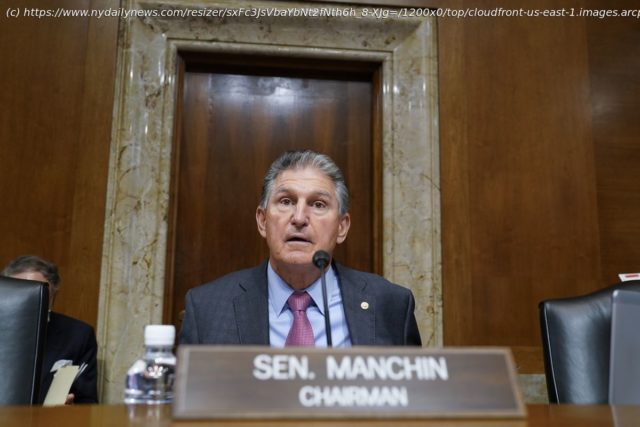The two centrist lawmakers who have balked at the price tag and are now under pressure to show Biden what amount they could live with.
WASHINGTON (AP) — Two key Democratic senators are expected to meet Tuesday with President Joe Biden at the White House as the party works to narrow his $3.5 trillion legislative package and momentum builds to close the deal with centrist and progressive lawmakers. Sens. Joe Manchin D-W. Va., and Sen. Kyrsten Sinema, D-Ariz., are linchpins for the final package — two centrist lawmakers who have balked at the price tag and are now under pressure to show Biden what amount they could live with. Biden is expected to meet separately with Manchin and Sinema as he works to come up with a final number, according to a person familiar with the meetings and granted anonymity to discuss them. “We just have to make difficult choices,” Speaker Nancy Pelosi told House Democrats during an evening caucus meeting Monday, according to a person granted anonymity to discuss the private session. She told House Democrats that Biden was “working on that piece” — the overall figure for his signature measure — as negotiations were underway with the Senate. The behind-the-scenes talks come as Republican senators blocked a bill Monday to keep the government operating and allow federal borrowing. Democrats aiming to avert a shutdown pledged to try again — at the same time pressing ahead on Biden’s big plans to reshape government. The efforts are not necessarily linked, but the fiscal yearend deadline to fund the government past Thursday is bumping up against the Democrats’ desire to make progress on Biden’s expansive $3.5 trillion social spending and climate legislation. It’s all making for a tumultuous moment for Biden and his party, with consequences certain to shape his presidency and the lawmakers’ political futures. “You know me, I’m a born optimist,” Biden told reporters Monday, as he rolled up his sleeve for a COVID-19 booster shot. “We’re gonna get it done.” Monday’s 50-48 vote against taking up the bill fell well short of the 60 needed to proceed over a GOP filibuster. Democratic Majority Leader Chuck Schumer switched his vote to “no,” a procedural step to allow him to bring the measure back for consideration.






